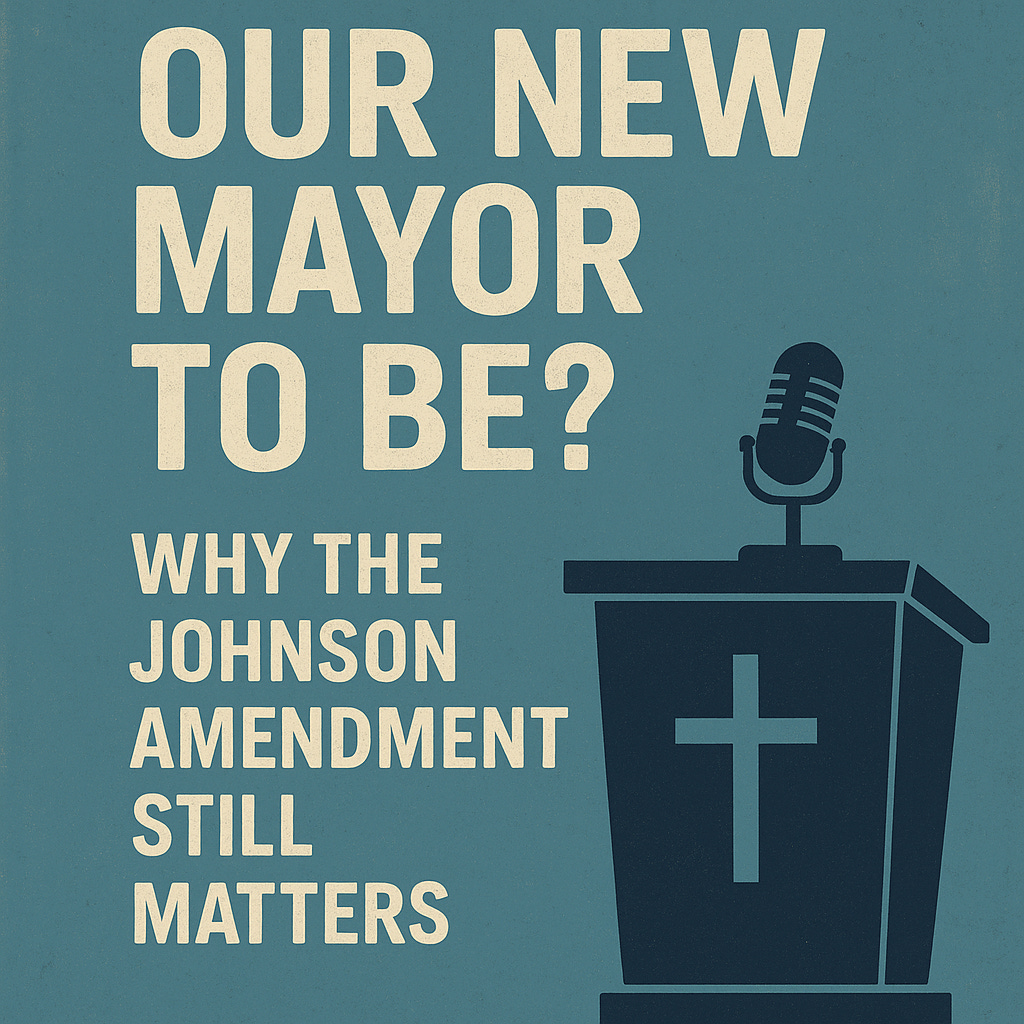Look, I’m a Christian. I believe in Jesus, the resurrection, the Bible, and the blessed hope. I also believe that what happened at Brooklyn Faith Seventh-day Adventist Church during their “Countdown to the End” evangelistic series wasn’t outreach. It was overreach. And this isn’t politically biased – the same analysis applies whether you’re in the Republican, the Democrat, or the Birthday Party.
Let me lay it out. During this month-long event, focused on prophecy, health, and salvation—Zohran Mamdani, a mayoral candidate, stood up in the pulpit and delivered a campaign speech. He quoted Lamentations, sure. But then he started talking about food insecurity, free buses, Medicaid expansion, and broken policies in Washington. In other words, a stump speech dressed in Biblical garb. And before anyone could say “render unto Caesar,” clergy laid hands on him and prayed over him as “our new mayor to be.”
This wasn’t an accident. This wasn’t “we invited a local leader to say a few words.” This was intentional. Public. Organized. It’s not even subtle. You can read the full description here: “Sickness in the City of God,” Adventist Today (October 7, 2025).
Here’s the thing. I’m not against Christians being involved in politics. Be a light. Be salt. Run for office. Work for justice. Great. But the church isn’t supposed to be a campaign stop. That’s not ministry. That’s messaging. You’re not winning souls, you’re securing votes.
Let’s talk law.
The Johnson Amendment—yes, still a thing—says this: if your church is a 501(c)(3) nonprofit, you cannot “participate in, or intervene in… any political campaign on behalf of (or in opposition to) any candidate for public office.” That’s it. Simple. Want to keep your tax exemption? Don’t endorse candidates. Don’t oppose them either. Just preach the gospel.
But we’re in 2025, and the IRS has started saying things that sound like a legal horoscope. They recently argued that if a church leader says something political inside a sermon, using “customary channels” of worship, it might not count as a violation. They even compared it to a “family discussion” inside a religious home.
You can read the IRS’s new argument summarized here: Religious Liberty TV, “What Churches Can and Can’t Do”.
And let’s be honest, that’s a pretty generous interpretation. That’s not repeal. It’s not a free pass. It doesn’t mean you can host campaign rallies, invite candidates to preach, or lay hands on them like they’re the next King David.
Let’s break this down.
If you’re a pastor and you say, “Here’s what Scripture says about justice, about caring for the poor, about how power should be used,” that’s preaching. That’s your job.
If you say, “Vote for Mamdani,” or “This guy right here is going to be our mayor and we’re proud to support him from this pulpit,” that’s not preaching. That’s campaigning.
The gospel is supposed to be bigger than politics. It’s not supposed to be a wing of a political campaign strategy.
And let me tell you what happens when you do this:
-
You alienate every person in your church who doesn’t vote like you.
-
You turn new visitors away before the second song finishes.
-
You confuse seekers who thought they were coming for truth, not turnout.
-
You make the gospel look like a campaign slogan with incense.
You want people to take Christianity seriously? Then stop using Jesus as a campaign surrogate.
I mean, can you imagine Paul the Apostle taking time out of his Mars Hill sermon to plug a mayoral candidate? “In Him we live and move and have our being, and also, vote for Felix in the upcoming provincial elections.”
Here’s a radical idea: Preach Christ. Period.
Teach your people to think biblically. Teach them how to engage culture without selling out to it. Remind them that the Kingdom of God is not coming in on Air Force One or campaign flyers. And when the election rolls around, trust your congregation to vote with conscience.
Churches shouldn’t be PACs or a way to secure large captive audiences who weren’t expecting it, and turn tax-deductible dollars into non-deductible campaign donations. They shouldn’t be used car lots for political promises. The gospel isn’t about winning elections. It’s about saving souls. And if we lose sight of that, we’ve lost the plot.
So what should churches do?
-
Preach biblical values. Talk about justice, life, poverty, truth.
-
Educate, don’t endorse. Offer nonpartisan voter guides. Host forums where all candidates are invited.
-
Keep the pulpit sacred. That means no candidate speeches during services. Not ever.
-
Pray for leaders, don’t campaign for them. Ask God to guide our cities. Don’t assume you already know who’s anointed.
I’m a Christian. I vote. I care about justice. But I want the church to stay the church. I want the pulpit to stay holy. I want my neighbor who disagrees with me politically to still feel welcome sitting next to me on Sabbath morning.
Because if the church becomes just another campaign stop, don’t be surprised when people treat it like one. Show up when they want something. Leave when they don’t.
And that’s not faith. That’s politics.
Sources:
